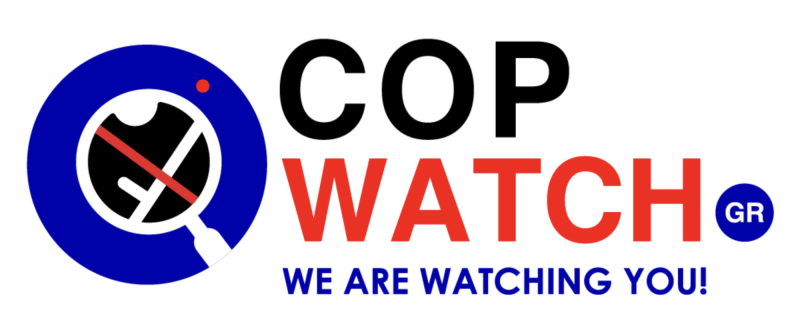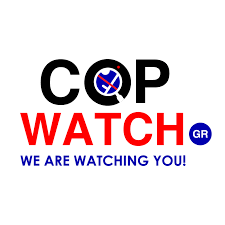The project aims to counter the underreporting and misrepresentation of police misconduct in mainstream media—especially in cases involving marginalised communities and protestors. This lack of reliable coverage creates an information gap, allowing abuses to remain invisible and unchallenged. The project addresses this by equipping citizens with the tools and knowledge to generate verified, shareable, and legally usable evidence of police violence. By transforming lived experiences into documented proof, it empowers communities, strengthens public interest journalism, and reinforces accountability.
Objectives
- Train individuals and communities in citizen/community journalism.
- Establish a secure digital system for reporting and archiving cases of police misconduct.
- Produce accessible news reports based on citizen-submitted evidence.
- Support legal action using documented material.
Activities and Outputs
- Citizen Journalism Guidebook - The project will create Film the Police, a practical guide based on journalistic and academic methods. It will include safety tips for filming police, legal rights, and journalistic ethics. The guide will be distributed to workshop participants and the public in Greek, English, Arabic, and Urdu.
- Workshops & Outreach - Workshop content (presentations, scripts, training modules) will be developed based on the guidebook. Outreach will include flyers, stickers, and online campaigns. Workshops will be led by the Policing Observatory team, with interpretation as needed.
- Digital Platform - A technical expert will design a secure platform for uploading and archiving audiovisual material. Features will include end-to-end encryption, metadata preservation, authenticity verification, and GDPR-compliant data storage.
- Legal Oversight & Data Protection - A legal expert will ensure GDPR compliance and participant safety. Deliverables include a legal framework for filming police, risk assessment, data protection protocol, and a consent framework.
- Social Media Campaign - Designers and animators will be subcontracted to create reels, TikToks, and graphics to promote the project’s goals to a wider audience.
- Public Event & Final Report - The project will conclude with a public event showcasing the platform and citizen journalism approach. A final report will summarise key outcomes and participant feedback.
The Policing Observatory – Copwatch GR is Greece’s first independent police monitoring media outlet, operating as a registered non-profit since May 2023. It accepts no state or corporate funding, relying instead on foundations and individual supporters to maintain independence. Founded in response to increasing incidents of police misconduct and systemic impunity, its mission is to document, archive, and raise awareness of police violence, while promoting legal education among affected communities. Its work enhances public understanding of policing and reinforces demands for accountability and reform.
Key activities include maintaining Greece’s first dedicated database on police misconduct, sharing visual evidence with legal experts for litigation support, and producing legal rights guides. The organisation works closely with those most impacted—protesters, youth, Roma, and migrants—while participating in international networks such as the Justice, Equity & Technology Table.
Launched as a social media initiative in November 2020, the Policing Observatory has developed into Greece’s leading platform for documenting police violence. Its media work is youth-focused, multimedia, and bilingual (Greek/English), reaching over 70,000 followers through social media and independent newsletters. Content is created from the perspective of affected communities and includes field reporting, open-source investigations, testimonies, and interviews. Outputs range from short videos, comics, and documentaries to legal rights education materials and social campaigns, amplifying voices often excluded from traditional media.
Goals (Expected) of the Project
The project empowers citizens and communities to become active participants in public interest journalism, contributing to a more pluralistic media landscape in Greece. Quantitative outcomes include 10 workshops with over 120 participants, distribution of 1,000 guidebooks, and the launch of a secure digital platform for citizen-submitted content. Qualitative outcomes will be measured through participant feedback, engagement levels, and the quality of contributions.
A key outcome is the creation of a national network of citizen/community journalists documenting police misconduct and securely sharing evidence. This expands media pluralism by amplifying voices excluded from mainstream discourse, including Roma, migrants, refugees, LGBTQI+ individuals, and youth. By turning lived experiences into verified, legally actionable information, the project bridges the gap between grassroots realities and public narratives.
The initiative strengthens democracy and human rights by equipping citizens with the knowledge and tools to hold power to account. Its outputs—guidebook, workshops, and social media campaigns—are designed for long-term impact, reaching beyond direct participants. Sustainability will be supported through the Observatory’s independent newsletter system, reducing dependence on major social platforms and enabling grassroots fundraising.
Diversity, equity, and inclusion (DEI) principles inform all project phases: entry quotas ensure minority participation, workshops address bias, and a harassment-free environment is upheld in accordance with Greek Laws 4808/2021 and 4443/2016. Anonymous feedback and diversity monitoring will support continuous improvement.
In a country ranked 89th in RSF’s 2025 Press Freedom Index, where media pluralism is threatened by concentration, interference, and repression, this project offers a concrete intervention. By decentralising news production and enabling affected communities to document abuse, it safeguards vulnerable voices and contributes to a stronger democratic culture.

